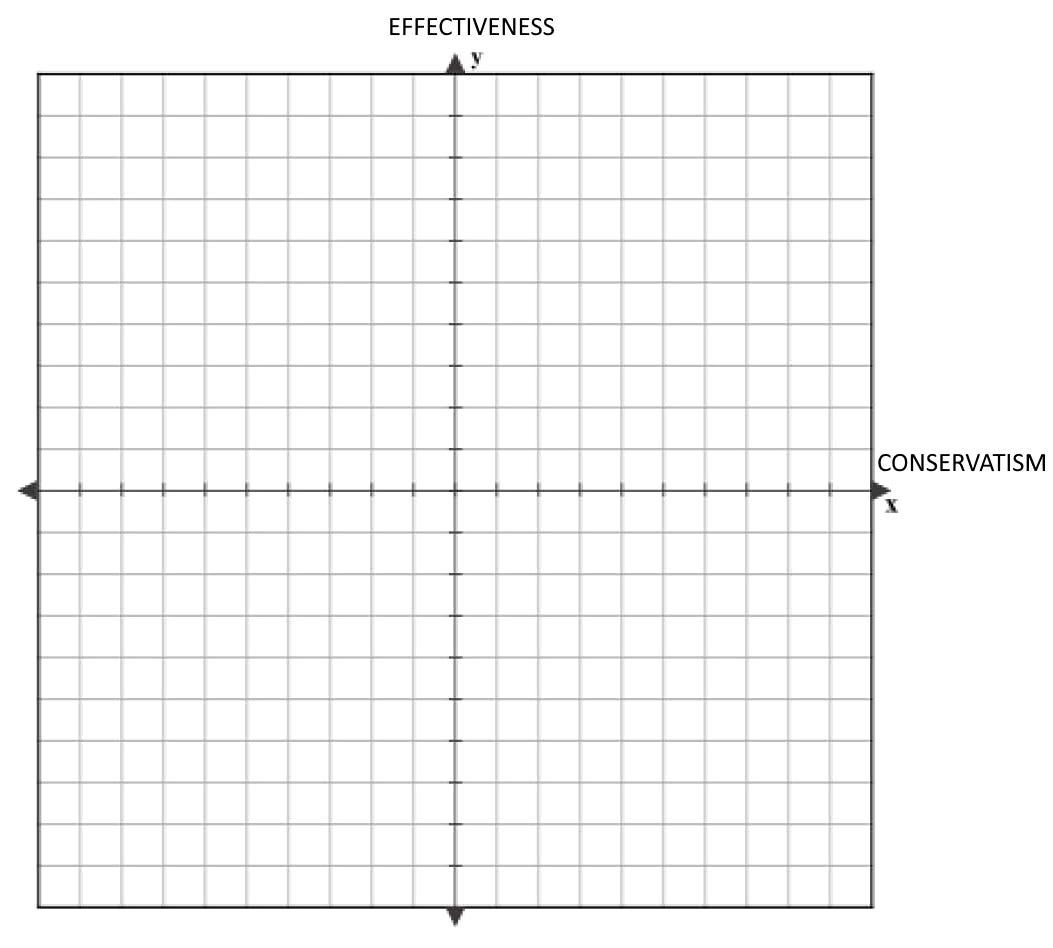Many conservatives dislike the idea of power, associating it with dictators and Democrats and viewing it as intrinsically bad. However, power is a tool that can be used for good or ill, and when conservatives eschew it, only the left wields it.
The purpose of politics is to enact policy, whether implementing new ideas or repealing bad ones. In a republic like ours, this is accomplished by winning elections. Once a coalition of people who share the same principles and goals secures enough seats in the legislature, it can pass its desired bills.
The political process of the American Republic involves two stages: campaigning and legislating. Candidates who lose their campaigns do not have the ability to legislate, so winning election is an obvious necessity.
Too many conservatives view principles and power as opposites, believing it's impossible to maintain principles in power since conventional wisdom suggests that compromise is the only path to that power. This belief has kept conservatives on the defensive for too long.
Our Founding Fathers won political power with the literal barrel of a gun. They did not use that power to oppress their people (Daniel Shays might disagree) but instead they used it to create a new nation where people could flourish.
Both Javier Milei of Argentina and Nayib Bukele of El Salvador gained political power in their own countries and are currently using it to fix problems that have plagued their people for ages. Milei is in the process of getting inflation under control while Bukele has nearly eliminated the gang problem that made his country the murder capital of the world.
The citizens of Florida elected a very conservative legislature and a great governor in Ron DeSantis. Those people have not been afraid to use power, from fighting Disney to eliminating DEI and CRT from public schools and universities.
This is the nature of politics. Imagine refusing to bomb Japan after Pearl Harbor because bombs are a tool of the enemy. Imagine recovering a fumble and then immediately taking a knee because gaining yardage is how our opponents win.
Holding political power in a republic is an awesome responsibility. It’s much easier to play the role of loyal opposition, criticizing the ruling party for their misdeeds or even your own party for not being principled enough. The process of governing and fulfilling promises you made to voters is much harder.
When Republicans are in the minority, they have the freedom to loudly proclaim their principles, because it doesn’t cost anything. During Democratic majorities in Congress, Republicans often introduce audacious bills to abolish the Federal Reserve, the Department of Education, or impeach President Joe Biden. However, these initiatives disappear when they gain the majority.
All too often, political figures engage in cheap virtue signaling when they know there is zero chance of them having to worry about actually implementing the policies they proclaim. The debate over abortion in the national Republican platform is a perfect example of this tendency.
The Republican National Convention has drafted a new party platform emphasizing Donald Trump’s priorities for a second term. Pro-life activists are outraged that opposition to abortion has been removed as a major plank, publicly stating they cannot in good conscience vote for Trump now.
This too is a mistake, and likely disingenuous as well.
First, abortion is a losing issue at the national level for conservatives. The left wants to make the election a referendum on abortion to distract from issues like the southern border, increasing crime, potential war, and President Biden’s clear mental degradation. Republicans shouldn’t give them this opportunity.
Donald Trump did what no other Republican leader had done — overturn Roe v. Wade. The goal of the pro-life movement for nearly fifty years was to return the issue to the states, which is where the battle must now be fought. Removing it from the national platform is a nonissue.
Pro-life leaders who claim they cannot now in good conscience vote for Trump now are failing to think strategically. Voting is not a sacred act nor an endorsement of everything a candidate has ever said or done. It’s a strategic decision in a republican system of government. Your choices in this election are Biden or Trump.
One of these men has already succeeded in overturning Roe and will clear the battlefield for the ongoing fight for life, while the other will codify Roe into federal law.
One has a chance of stopping the southern border invasion, which is unbalancing our economy, altering our demographics, and ensuring Democratic control for generations, while the other will keep the door wide open.
One has a record of working toward world peace, while the other may drag us into a third world war.
Given those two choices, which will you choose?
If Donald Trump had lost in 2016, Hillary Clinton would have appointed three justices to the Supreme Court. Instead of Neil Gorsuch, Brett Kavanaugh, and Amy Coney Barrett, who provided the majority to overturn Roe, we would have had the likes of Merrick Garland, Loretta Lynch, and perhaps even Kamala Harris. Roe would have stood, and all recent favorable Supreme Court decisions (restraining the EPA, allowing cities to clean up homeless camps, overruling Chevron Deference, etc.) would have gone the other way.
That is the difference between winning and losing. Isn’t it better to win? Even if you only get half of what you want, that’s more than nothing, which is what losers get.
There is nothing noble about losing in politics. History might remember Bob Dole and Mitt Romney as nice gentlemen who ran positive campaigns, but they never had the luxury of implementing their policies. (Not that either man’s policies would have been materially different from Bill Clinton’s or Barack Obama’s.)
I often conceptualize this paradigm using a graph. One axis represents conservative principles while the other is political effectiveness. Consider your own legislators — where do they fall on this axis? Someone who is very effective, but not at all conservative (the upper left side of the graph) is dangerous. However, someone who is very conservative, but not effective (the lower right side) is useless.
We want people who are both conservative and effective, those who fall on the upper right side of the graph. We need people of principle who have the ability to draft good bills and the influence to push them through the legislative process. Legislation is the process of turning principles into policy. We need 36 votes in the House, 18 in the Senate, and one signature from the governor to create law. Passion, eloquence, or social media popularity means nothing without the votes to pass bills.
According to the Idaho GOP Platform Ratings by the Institute for Legislative Analysis, 33 legislators were rated 70% or higher this year. With only 38% of the GOP legislative caucus, solid conservative legislation was difficult to pass. It’s a wonder we got a few good bills across the finish line at all!
According to some complex calculations (that is, my gut feelings), that number should increase to at least 41 this session, maybe higher depending on a few close races. That puts the 70% and up club at around 48% of the GOP legislative caucus, which, while still not an outright majority, is a very powerful voting bloc.
There’s no excuse not to get things done in the 2025 session, but it means conservatives need to use the power voters have given them. Conservative legislators need to work with House and Senate leadership to secure committee chairmanships and ensure their legislation reaches the floor.
When political power is within reach, there is a temptation to retreat to the comfort of the opposition, where principles can remain pure. But voters elected conservative legislators to effect change. The marker of success in politics is policy, not social media or fundraising. While these are important for electing good legislators and holding them accountable, they are not the end goal.
Lord Acton said, "Power tends to corrupt, and absolute power corrupts absolutely." Many see this as an inevitable law rather than an observation about human nature. A politician's long tenure doesn’t necessarily mean they've compromised their principles. Ron Paul represented Texas in Congress for over two decades without compromising his principles. William Borah served in the Senate for more than three decades, remaining a committed non-interventionist throughout.
I sometimes wonder if Lord Acton’s axiom is backwards. Does power corrupt, or does it attract the corruptible? For every Ron Paul, there are dozens of Mitch McConnells and Joe Bidens who trade scruples for tenure. When we find principled leaders, we should support them instead of assuming they will inevitably be corrupted. We need good conservatives in power; otherwise, our discourse, ideas, and work are for naught.
We need to keep our eyes on the prize, but first we must articulate exactly what that prize is. What are the principles you are fighting for?
Here are mine:
The purpose of government is to protect life, liberty, and property, and a safe, healthy, and fulfilled society must be founded on the eternal truths of God that built Western Civilization.
What does that mean with regards to policy?
Protecting Children: Ban abortion as strictly as feasible, protect children from harmful materials, and ensure a functional public school system by allowing money to follow the student.
Protecting Resources: Ensure equitable access to water and provide cheap, reliable energy, with nuclear as the future. Remove government regulations that make housing and resources expensive, while protecting them for future generations.
Reducing Taxes and Spending: Minimize government spending, as every dollar spent is taken from taxpayers.
Enforcing the Border: Use every resource to expel those here illegally and punish businesses that knowingly hire them.
Eliminating DEI, CRT, and Radical Gender Theory: These programs aim to divide and destroy, and must be removed from the public square.
This is not a comprehensive list of policies I support, but it’s a start. This is what I want my legislators to work on in the next session. Your priorities may differ, but I assume most of my readers are on the same page.
We should not have to choose between principles and political power, rather we need to invest good conservative legislators with political power and then hold them accountable to their principles. It can be done! Ignore the sideshows and keep your eyes on the prize. We elected our lawmakers to do a job, and now it’s time for them to do it.
Bonus note for paid subscribers below:
Keep reading with a 7-day free trial
Subscribe to Gem State Chronicle to keep reading this post and get 7 days of free access to the full post archives.




